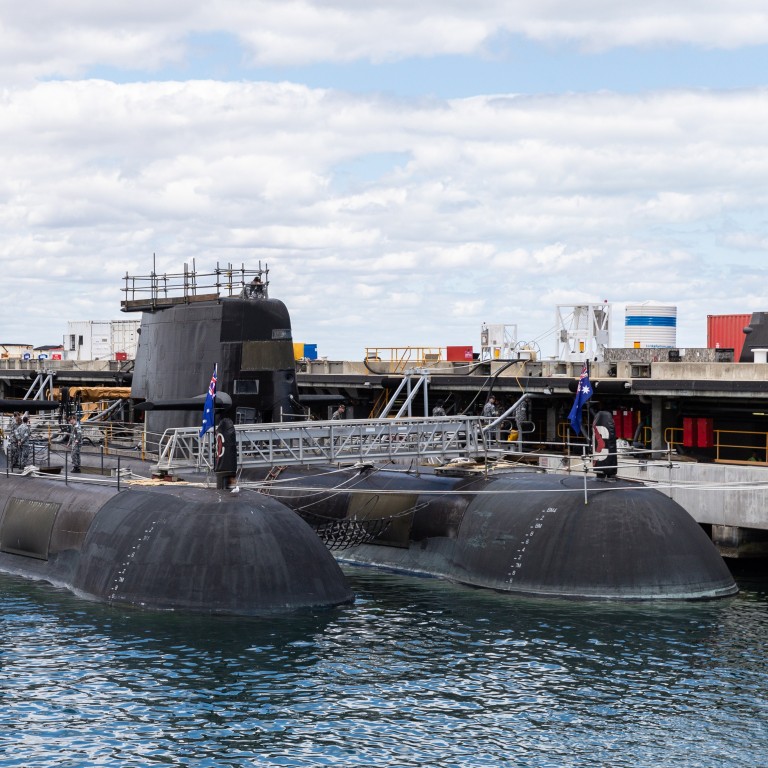
Aukus alliance: Australia on track to unveil nuclear submarine plan in early 2023
- Australia’s announcement will include a timeline for the arrival of the nuclear-powered submarines and how to bridge any capability gaps
- It is part of its project with the US, UK under the Aukus security agreement for closer collaboration on defence, research
“You don’t build a nuclear-powered submarine quickly, and so the question of when we would be able to have the first submarine in the water is one that is very pertinent to us,” Marles said on Saturday at a joint news conference with US Defence Secretary Lloyd Austin after talks in Honolulu.
“It was great with Secretary Austin to affirm the progress there,” Marles said.
While extending the life of its existing, non-nuclear subs, Australia is seeking to “minimise and plug any capability gap,” Marles said. The announcement will involve a timeline for the arrival of the nuclear-powered models and how to bridge any capability gap, he said.
Marles said China is seeking “to shape the world around it a way that we have not seen before”, posing a challenge for countries seeking “seeking to uphold the global rules-based order”, including freedom of the seas.
After IAEA Director General Rafael Mariano Grossi said he was satisfied with the Aukus partners’ engagement so far, Chinese Foreign Ministry spokesperson Mao Ning accused the agency of turning “a blind eye” to international concerns.

